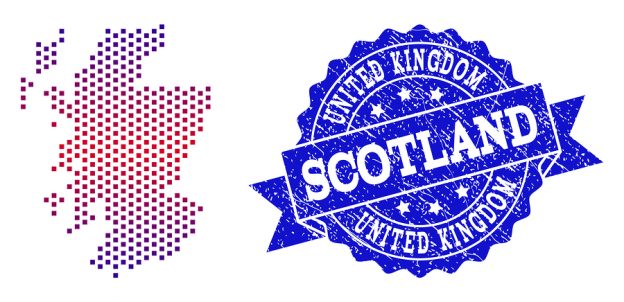
The Scottish finance secretary, Derek Mackay, has presented his draft Budget proposals to the Scottish parliament. The main headline is the income tax announcement. Lower earners will pay less than others earning the same in other parts of the UK and higher earners will pay more.
Scottish Income Tax Brackets
Unlike other areas of Britain, Scotland now has five tax bands. This Budget sees the introduction of the Intermediate Rate.
The new Budget defines the tax brackets as follows (Pence in the pound):
- Starter rate: 19p on salaries between £11,850 and £13,850
- Basic Rate: 20p on salaries between £13,851 and £24,000
- Intermediate Rate: 21p on salaries between £24,001 and £44,273
- Higher Rate: 41p on salaries between £44,274 and £150,000
- Additional rate: 46p on salaries over £150,000
What does this mean for Scottish income tax?
One of Mr Mackay’s main points is that no Scottish taxpayer that earns under £33,000 will pay any more tax next financial year.
There is also the discrepancy between Scottish taxpayers and other UK taxpayers. After this Budget, 55% of Scottish taxpayers paying less compared to those living in other parts of the UK and 45% paying more.
For example, for an additional rate taxpayer earning £150,000, their Scottish income tax bill will be £1,774 more than if they lived in another part of Britain. Someone on £40,000, paying the new Intermediate Rate, will have an extra £140 to pay.
According to ICAS (an accountancy body) a comparative analysis shows that there are 2.2m basic rate taxpayers in Scotland. With the new Budget, 800,000 of them will pay slightly more than the rest of the UK and 1.4m will pay a bit less. All of the 20,000 additional rate and the 346,000 higher rate taxpayers will get a tax bill that is higher than other parts of Britain.
Other Scottish Budget announcements
Despite the headlines, it’s not just about income tax rates. Mr Mackay made a series of announcements, including:
- £600m for superfast broadband to everywhere in Scotland by 2021
- An extra £9m for education to narrow the attainment gap (total of £179m)
- Land and Buildings Transaction Tax full tax relief for first time buyers on properties costing up to £175,000
- Public sector pay cap lifted. 3% pay rise for those earning under £30,000, 2% for those over £30,000 and a maximum of £1,600 pay rise for those with £80,000 or more salary
- No charitable business rates tax relief for private schools
- £243m for free childcare and nursery education
- £400m for NHS; a massive double the amount required to match inflation
- Universities and council arm’s length bodies eligible for charitable business rates relief
- £94m total increase in local authority core funding
How do people feel about these announcements?
Mr Mackay justified the changes to the income tax rates by saying that they will raise an extra £164 and simply that they were essential “mitigate UK budget cuts, protect our NHS and other public services, support our economy and tackle inequality in our society.”
He also made a point of principle, that the changes make “Scotland’s income tax system even fairer and more progressive,”
There are concerns that making Scotland a more expensive place to live will deter those higher earners from living and working in the country at all. Or that they will find a way around the extra tax bill and end up contributing less. For example The Scottish Chambers of Commerce said they were worried about “Scotland’s new status as the highest taxed part of the UK.” The Federation of Small Businesses is quoted as saying this takes Scotland into “unchartered economic waters.”
The different political parties, unsurprisingly, have their own different opinions:
- Scottish Green Party: Should have made more radical changes, but “delighted that the argument for a more progressive tax structure appears to have won the day”. (Patrick Harvie)
- Scottish Conservatives: Murdo Fraser argues that this broke an SNP manifesto pledge not to raise basic rate taxes
- Scottish Liberals: “does not do enough to meet the long term needs in the economy” (Willie Rennie)
- Scottish Labour: also would like to have seen things taken further to combat “Tory austerity” (Richard Leonard)
This draft Budget still has to be ratified by the Scottish Parliament, so there is still time for changes to the proposals to incorporate all these different voices.







